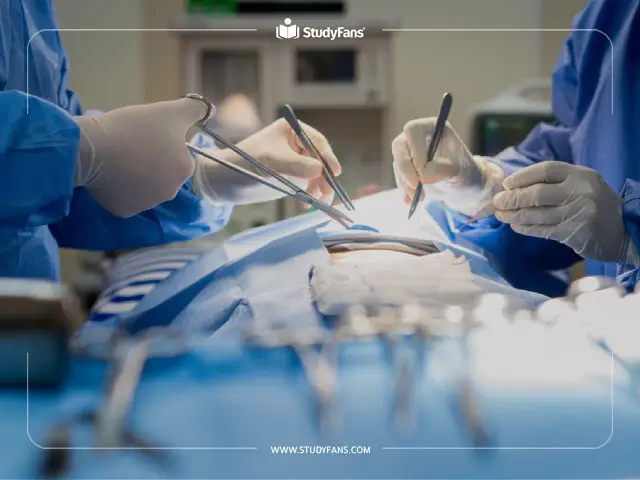TUS is an exam required for postgraduate medicine studies in Turkey and choosing a specialty after finishing a medicine bachelor’s degree. TUS is an abbreviation for (Tıpta Uzmanlık sınavı) which means medical specialty exam, and it takes place twice a year in April and September.
What is the TUS Exam?
If you are studying in medical school or have graduated and getting ready to select your specialty, then you must have heard about the TUS exam for postgraduate medical studies also known as the medical specialty exam.
The TUS exam can help evaluate your knowledge in basic science and clinical science.
Anyone who finishes medicine school is called a resident, after that, they choose a specialty depending on their TUS exam result and they start training for a period of 3 to 6 years in hospitals, health ministry’s research center, or institute of forensic medicine.
Read more about: Studying Medicine in Turkey
Master’s and PHD degrees in Medicine in Turkey
Doctors who graduated from medical school take the postgraduate exam (TUS) and when they pass the exam and finish their residency, they become board-certified attending physicians.
The result from the TUS exam will determine a medical student’s specialty. Where all exam applicants are being evaluated just like tertiary admissions centers but for medicine departments.
Eligible students should be under 35 years old and fulfill one of the following conditions:
Foreigner students
The availability of the international student quota in one of the different educational institutes.
Students who are seeking to do their postgraduate studies in one of medicine’s major branches have to get their bachelor’s degree by the higher education institute (YÖK), regardless of completing their bachelor’s degree in Turkey or abroad.
Students should have no restrictions to prevent them from continuing their studies in Turkey.
Having a residence permit in Turkey
Students should have either a scholarship or a bank statement that proves they can support themselves.
Students should have a seat allocated to them per the postgraduate entrance exam.
Students should have a Turkish language proficiency certificate from a certified center, the certificate is acceptable only during the first year of its issuance.
Postgraduate foreign students, if they acquired Turkish citizenship, will continue their studies without any salary like any foreign student.

When is the TUS exam held to complete postgraduate studies in medicine in Turkey?
There are two exams, one in April and the other in September every year, and registration starts two months before the exam. The dates are announced to the public through the media.
To be able to choose a specialty, graduated doctors should have at least 50 points from one of the language exams (YDS, TIPDİL, YÖKDİL) that are accepted by ÖSYM.
Read more about: Your Guide for Master's in Turkey 2023
Who Can Enter TUS Exam?
Every graduated doctor from medical school who applies to choose their specialty.
Medicine students including interns.
All students or graduates of pharmacy, veterinary, chemistry, or biology departments can enter the exam but only for basic science and not the clinical part.

Can a graduate of human medicine outside Turkey specialize in Turkey?
Students who have a bachelor’s degree from outside of Turkey should enter the STS exam first to equivaleate their medical degree, then they can enter the TUS exam.
How Many Questions in the TUS Exam?
During the TUS exam, there will be questions that cover all medical school years.
In two separate sessions in the morning and the afternoon, 240 questions will be asked:
120 questions in 150 minutes that cover basic sciences.
120 questions in 150 minutes that cover clinical sciences.
What is the Basic Sciences Exam?
Basic sciences exam includes all the courses that were taught during the first three years of medical school:
Anatomy
Biochemistry
Physiology
Histology
Embryology
Microbiology
Pharmacology
Pathology
There are different questions for each subject, on average there are 22 questions for biochemistry, microbiology, pharmacology, and pathology, 14 questions in anatomy, 10 questions in physiology, and 8 questions for both histology and embryology.
Learn more about: study medicine in Turkey in English
What is the Clinical Sciences Exam?
Clinical sciences exam will have questions about the last three years of medical school.
Internal medicine (30 questions on average)
Pediatric medicine (30 questions on average)
General surgery (25 questions on average)
Obstetrics and gynecology (12 questions on average)
Internal training (23 questions on average)
Candidates must show their quality in this exam because they will be ranked on their score.
How Long is the TUS Exam?
Candidates are given 300 minutes split between two exams, 150 minutes each.

Example of TUS Exam’s Question
If you want to test your medical knowledge you can find a question bank for the TUS exam which has been prepared by ÖSYM since 2006.
After answering all questions, you can find the correct answers below to see how well you did.
How to Prepare for the TUS Exam?
Candidates who are preparing to do this sacred job should focus on studying to learn and not just to pass the exam.
Success odds for a well-prepared candidate are far better than his failure, so make sure during your preparation to study effectively and don’t wear yourself out.
Be positive. The TUS exam is a difficult exam and needs hard work, but remember continuous work will lower your productivity, you should have a schedule like 50 minutes studying and 10 minutes break and solve a lot of questions because repeating information will help you memorize it.
Advice for the TUS Exam
Prepare yourself for the TUS exam so you can use your energy and attention to the highest capacity, and you should use all the allocated time as well.
Read all the questions and answers carefully and remember you can find hints in the questions.
Read all the instructions meticulously, this will lead to fewer mistakes.
Pay close attention to adjectives as they can change the question meaning, also medical suffixes and prefixes like (hypo, -itis, -ectomy, hyper) can be the problem.
Don’t let anxiety tear down your confidence. If you study hard enough you will pass the exam, just use what you have learned.
Don’t overwork your brain.
For a choice to be wrong, only a part of it can be wrong, however, for a choice to be correct, the entire answer should be correct.
Read the entire question carefully because some questions have different parts, so focus on the main words that can help you to solve the problem. Words like (“always”, “all”, “never”, “never”, “most probably”, and “in the first place”) play an important role. In most of the answers distracting words like (“always”, and “never”) are among the wrong choices.
Read also about: Top 10 Best Public Universities in Turkey
If you wanted to know more or have any questions, we are here to help you and you can always contact us:
Phone: 00905437394024
Or via WhatsApp through this link.





